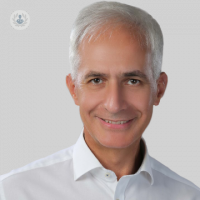Heart health essentials: Why regular check-ups matter for everyone
Written by:In life, the heart acts like a conductor, controlling how we live. But we usually notice its importance only when things go wrong. Regular heart check-ups aren't just for people with heart problems; they're for anyone who wants to stay healthy. Professor Attila Kardos shares more in his recent online article.

Who should have regular heart check-ups?
Regular heart check-ups are essential for individuals of all ages, especially those with risk factors such as a family history of heart disease, high blood pressure, high cholesterol, diabetes, obesity, or a sedentary lifestyle. However, even those without apparent risk factors should consider regular screenings, as heart conditions can manifest silently.
What types of tests might they undergo?
Heart check-ups typically include a variety of tests tailored to assess cardiovascular health. These may include blood pressure measurement, cholesterol level assessment, electrocardiogram (ECG/EKG), echocardiogram, stress tests, and more specialised tests such as cardiac CT scans or cardiac catheterisation, depending on individual risk factors and symptoms.
What should a patient expect when they attend their appointment?
Attending a heart check-up appointment involves a series of assessments designed to evaluate overall heart health. Patients can expect a comprehensive review of medical history, lifestyle factors, and symptoms, followed by a physical examination and various tests as deemed necessary. The process is generally non-invasive and conducted in a supportive, informative environment.
How often should check-ups take place?
The frequency of heart check-ups depends on individual risk factors and health status. As a general guideline, adults should undergo a baseline heart evaluation in their 20s and 30s and then regularly as recommended by their healthcare provider. For individuals with risk factors, more frequent monitoring may be necessary.
What tips can you recommend to maintain heart health?
Maintaining heart health goes beyond occasional check-ups; it's a holistic commitment to lifestyle choices. Here are some tips:
- Embrace a well-rounded diet abundant in fruits, vegetables, whole grains, lean proteins, and beneficial fats.
- Engage in regular physical activity, aiming for at least 150 minutes of moderate-intensity exercise per week.
- Manage stress through relaxation techniques such as deep breathing, meditation, or yoga.
- Quit smoking and avoid exposure to second-hand smoke.
- Limit alcohol consumption and avoid excessive intake.
Follow your healthcare provider's recommendations for managing underlying conditions such as high blood pressure, high cholesterol, or diabetes.
Professor Attila Kardos is an esteemed consultant cardiologist. You can schedule an appointment with Professor Kardos on his Top Doctors profile.


